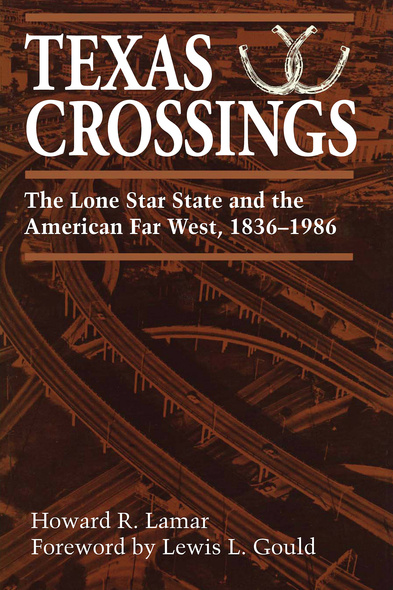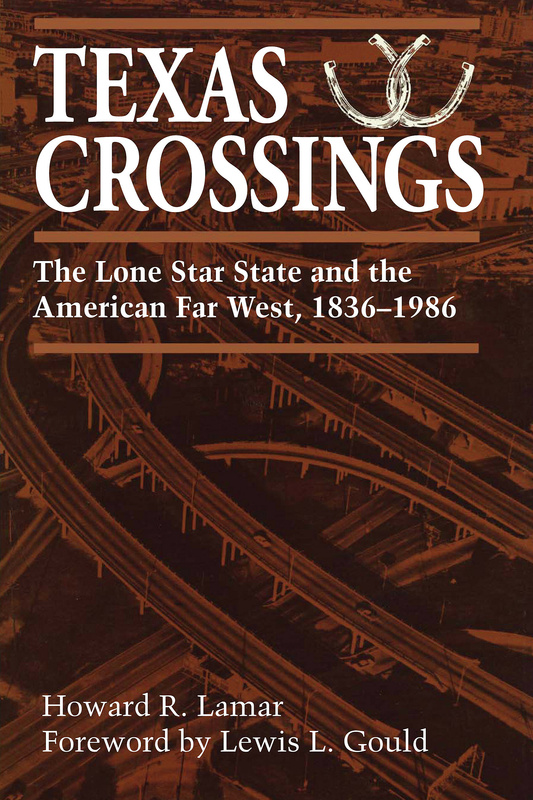Our shopping cart is currently down. To place an order, please contact our distributor, UTP Distribution, directly at utpbooks@utpress.utoronto.ca.
Texas Crossings
The Lone Star State and the American Far West, 1836–1986
“Texas is not a place, it is a commotion!” exclaimed one early visitor to the state, underscoring the mobility and “get-ahead” spirit that have always characterized Texas and its people. In these thought-provoking essays, Howard R. Lamar looks specifically at the “crossings” that have characterized Texas history to see what effect these migrations to and through Texas have had on Texas, the Southwest, and links between Texas and California.
Originally presented in 1986 at the University of Texas at Austin as the first George W. Littlefield Lectures in American History, these essays explore a previously neglected aspect of the western story: the influence of Texans—and other Southerners—on the character and history of the southwestern states. Lamar discusses the many efforts to establish overland trails, and later railroads, to California and how those efforts were fueled by the gold rush era of 1849–1850. He traces the influence of immigrant Texans and the flourishing southern community in California, particularly during the Civil War years. He follows the twentieth-century migration of “Okies,” whose desire to settle and resume their agricultural lifeways clashed with Californians’ preference for migrant workers. And he reveals how the discovery of oil, not only in Texas but also in California, western Canada, and Alaska, continues to link these regions.
Texas has always been a place that people pass through, going either east-west or north-south. Texas Crossings explains what brought the people to Texas and what they carried away with them to California and the West.
- Foreword by Lewis L. Gould
- Preface
- 1. Texas and the California Gold Rush
- 2. A Breed Apart: Texans in the California Gold Rush, 1849–1869
- 3. Imperial Strategies: Texas, California, and the Southwest, 1836–1986
- Notes
- Suggestions for Further Reading
- Index





